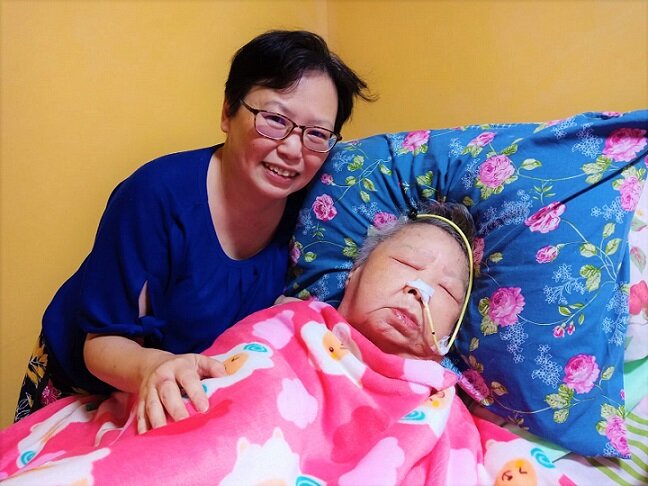
Close


As I struggle with changing diapers and waking up at 3am to feed my four-month-old baby, I cannot help but wonder how caregivers of our patients manage caring for their loved ones at home.
Caring for a terminally ill loved one at home can present unique challenges. Unlike in an institutional setting (e.g. in-patient hospices) where there are nurses and doctors on standby to assist the patient and manage their care, it is the family members who often have to manage the care needs of the patient at home, from changing diapers to feeding the patient and administering medication.
Sometimes, caregiving can be an overwhelming undertaking with unexpected emergencies, tensions among family members and, often, a dire lack of sleep and personal time. Some caregivers lament about having to go through the end-of-life process while other caregivers feel a great sense of achievement for being able to care for their loved one.
Mr Bob* decided that it would be best to resign from his managerial job to take care of his elderly father, who was suffering from end-stage cancer, and bed bound. Though Mr Bob was only in his 40s and at the prime of his career, he decided that he did not want to regret not spending this time with his father.
Initially unsure if he could manage, he underwent HCA’s caregiver training programme and consulted with our team on how to manage his father’s symptoms. The journey was rife with its fair share of ups and downs. Sometimes Mr Bob’s father would insist on having his favorite snack at 3am, while at other times, Mr Bob’s father would be so grateful that he was able to spend this time together with his son. Through Mr Bob’s commitment to caring for his father, both father and son were able enjoy their remaining time together.
Although Mr Bob had to sell his car and had exhausted a significant portion of his savings as he had resigned from his job, he felt fulfilled by the experience and had no regrets. Mr Bob shared that just as his father had taken care of him when he was a baby, the least he could do was reciprocate the love and take care of his father now.
It is through our work that we get to have a glimpse of these caregiving journeys – sometimes the journey is filled with tensions and difficulties, while other times it is uneventful and smooth-sailing.
Whichever way the journey is, to be a caregiver is a blessing, because to love is to sacrifice, to sacrifice is to give up something – something that we could have had otherwise. But in return, we gain something new, something that would never have been there in the first place.
It is important to create a schedule and form a routine, and to schedule breaks and personal time into the routine. Caregivers have cited having a daily routine as something that has been helpful, especially during busy periods, as they just need to follow the routine and not think of new ways to plan the day.
Count the little blessings and victories – caregivers shared that focusing on the little positives was better than always focusing on negative situations, and over time this helped to change their perspective.
Caregiving is a marathon, not a sprint. It is important to recognise that the caregiving journey can stretch on for weeks or even months, and to manage the priorities and pace yourself so as not to get burnt out at the start.
*not his real name